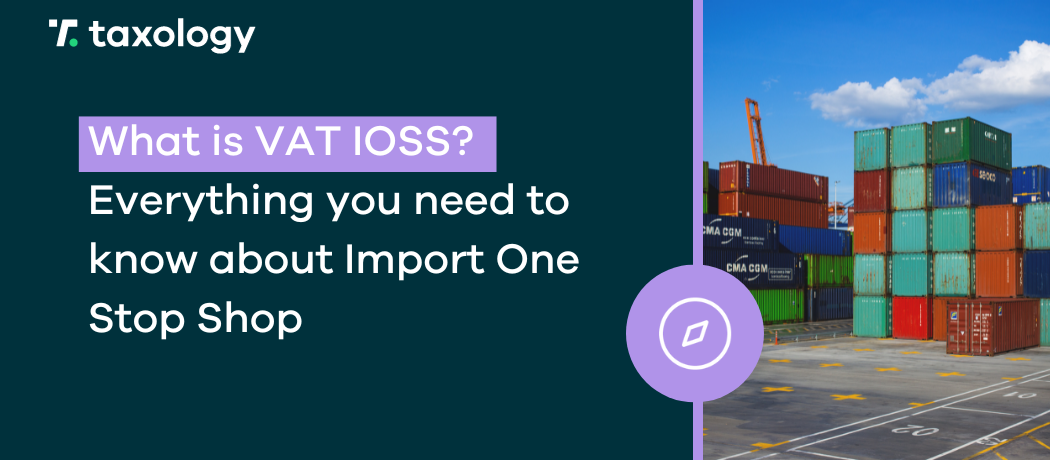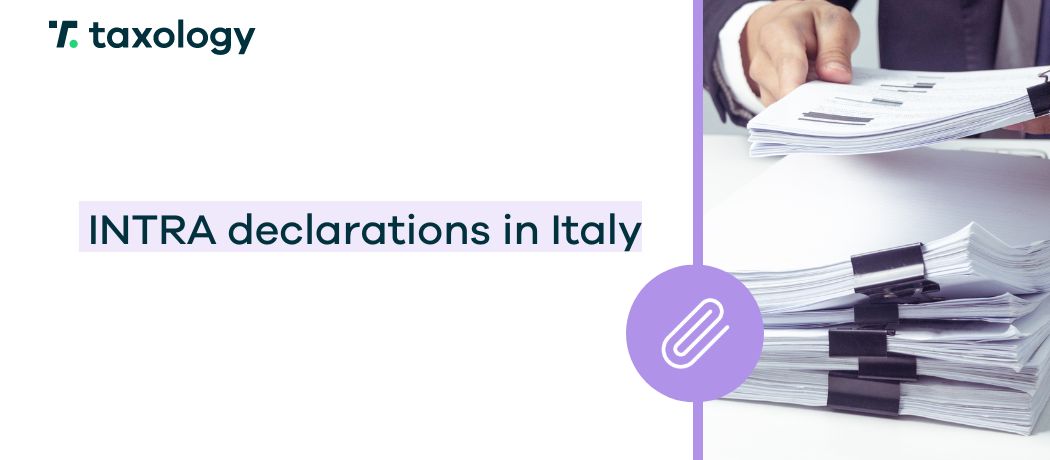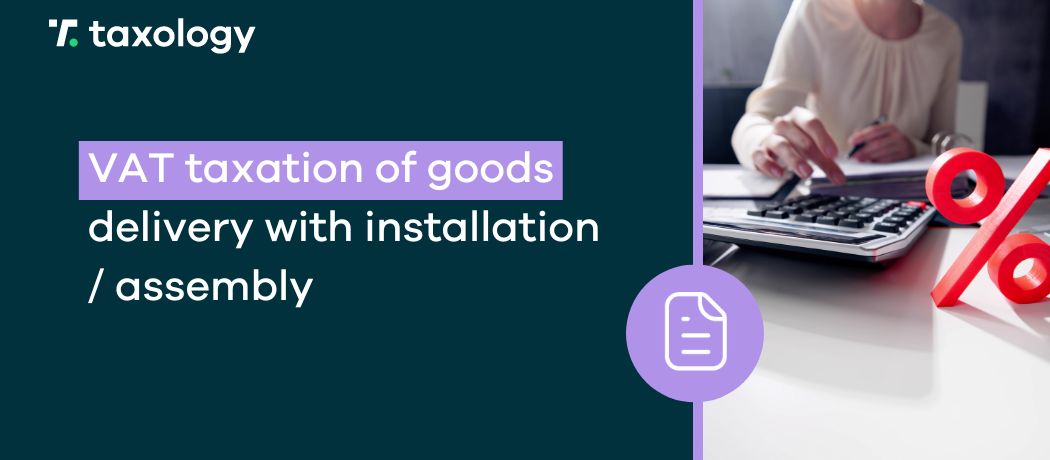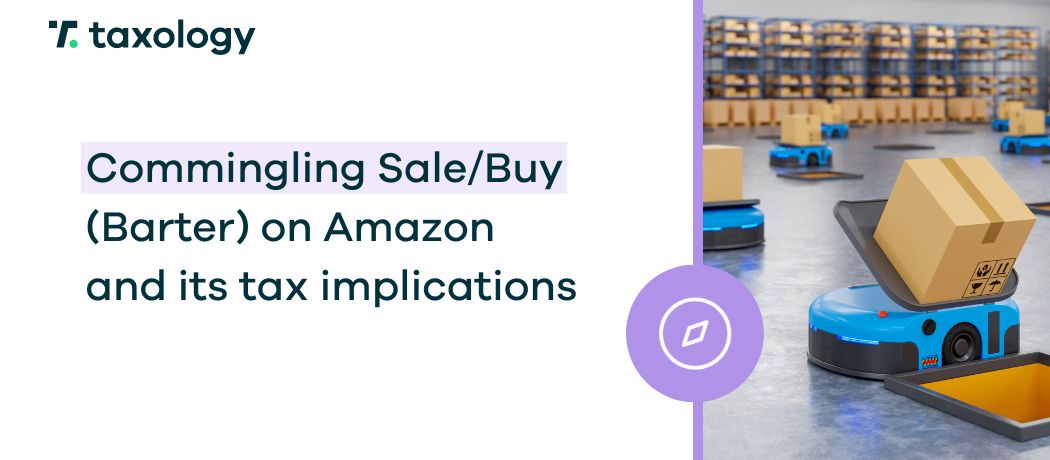Italy ranks as the fourth largest e-commerce market in Europe in terms of value. It is no surprise, then, that it attracts entrepreneurs looking to expand in this direction. However, […]
Read in: 4 minWhat is VAT IOSS? Everything you need to know about Import One Stop Shop
- Last update: 23.02.2024
- Published: 11.08.2023
- Read in: 8 min
The e-commerce sector is in a constant state of growth, with people in EU countries increasingly purchasing products from China or the United States. However, the settlement of VAT for such transactions can sometimes present challenges.
This is where VAT IOSS, or Value Added Tax Import One-Stop Shop, comes into play. Introduced by the European Union on July 1, 2021, this scheme is primarily aimed at streamlining tax procedures related to cross-border transactions. Particularly, it targets e-commerce sellers from non-EU countries selling to consumers within EU member states. The main goal is to simplify the often complex tax processes associated with such transactions.

From the following article you will find out:
- What exactly is VAT IOSS?
- How does VAT IOSS work?
- Who is the Import One Stop Shop intended for?
- What does the registration for VAT IOSS procedure look like?
- What transactions can be settled under the Import One Stop Shop procedure?
- What benefits are associated with employing VAT IOSS?
- How does VAT IOSS differ from VAT OSS?
What exactly is VAT IOSS?
VAT IOSS serves as a digital framework tailored for businesses engaged in selling products located outside the European Union to buyers within member states. This initiative, which came into effect on July 1, 2021, as part of the VAT E-commerce package, is aimed at streamlining the process of VAT management, reporting, and payment for output VAT resulting from distant sales of imported goods (SOTI).
It’s worth noting that opting for participation in the VAT IOSS procedure is at the discretion of businesses. Moreover, transactions processed through this system should not surpass a predefined value threshold of €150. An essential point to consider is that once a seller registers for VAT IOSS, it becomes obligatory to utilise this system for SOTI transactions, replacing the standard VAT settlement process.
How does VAT IOSS work?
For remote vendors opting to employ VAT IOSS, the procedure entails either registering within an EU Member State or designating a personal tax representative to oversee VAT affairs. After successful registration, a unique VAT IOSS number will be issued to the seller, serving as an identifier for taxation purposes.
Following this, the seller becomes responsible for levying VAT applicable to the buyer’s specific country when generating invoices. The entirety of VAT payments accrued within a transaction during a given month will be consolidated and managed through a single VAT IOSS return.
Who is the Import One Stop Shop intended for?
The VAT IOSS program extends its reach to non-EU sellers from third countries. To qualify, these sellers must be actively engaged in e-commerce activities, involving the sale of goods to non-VAT paying consumers within the European Union. Notably, for this arrangement to hold, the shipment’s actual value must not exceed €150.
An important note to underscore is that utilising VAT IOSS for goods of this value also grants an exemption from VAT payment at customs for imported supplies. The VAT IOSS process is built upon the understanding that this taxation will be managed through the tax authorities of the Member State of identification – in simpler terms, the EU country where the business has registered with the Import One-Stop Shop.

Need help with VAT?
Contact us and let us know what exactly we can help you with – registrations, settlements, declarations, VAT OSS or VAT EU – and our VAT Compliance experts will take care of the rest!
Schedule a consultationVAT IOSS registration
Enrolling in the IOSS VAT procedure mandates a preliminary registration process, which is conducted through the designated Member State of identification.
Who can register for the VAT IOSS procedure?
The two groups of suppliers eligible for registration under the VAT IOSS procedure are:
Those who are not headquartered nor possess a fixed business location within the European Union. In this context, they must collaborate with an intermediary based in an EU country.
Those who are based or possess a permanent business location within the EU.
Moreover, it’s important to note that registration for VAT IOSS isn’t limited to just suppliers. Entities that facilitate the distribution of goods, such as operators of digital interfaces (for instance, online auctions or platforms enabling transactions), also have the opportunity to register under VAT IOSS.
Selecting the Member State of identification
It is worth noting that the selection of the member state of identification involves four distinct scenarios:
- When a taxpayer operates their business or maintains a fixed establishment within any EU country, the country of identification corresponds to their registered office’s location.
- In cases where the taxpayer possesses a fixed establishment within the boundaries of a single Member State, that specific country assumes the role of the designated member state of identification.
- Should the taxpayer possess multiple fixed establishments dispersed across the EU, the member state of identification will be the outcome of a deliberate selection process.
- In situations where a non-EU trader lacks a fixed establishment within the EU, the member state of identification aligns with the country of the trader’s establishment.
VAT IOSS procedure – Where does the registration take place?
The process of VAT IOSS registration is conducted through the competent authority of the Member State of identification. This may encompass the tax office or any other relevant entity overseeing the VAT IOSS procedure within the respective country.
To initiate the registration process, the seller is required to submit Form VII-R. Upon successful completion, a VAT IOSS number will be issued. This number enables the seller to subsequently effectuate updates and modifications to their data, undertake the process of deregistration from the VAT IOSS procedure, and maintain communication with the relevant administrative body.
What transactions can be settled under the Import One Stop Shop procedure?
While we have addressed this matter earlier in this article, it is crucial to provide a concise overview of the specific transactions that fall under VAT accountability within the ambit of IOSS.
VAT IOSS encompasses distance sales of goods, the total value of which remains within the EUR 150 threshold, and that are dispatched or transported by either the supplier or an authorised representative, originating from outside the European Union and destined for consumption by an EU-based consumer.
What transactions are excluded from VAT IOSS?
It is important to remember that the ability to settle VAT for imports of goods from outside the European Union through the IOSS framework is not universally applicable. Under what circumstances does this scenario arise?
- When the recipient of the distance sale of goods is a self-employed taxable individual with an active VAT registration.
- In cases where the actual value of the goods surpasses EUR 150.
- When the imported goods are subject to excise duties.
- In situations where the shipment of goods is subject to VAT according to the margin scheme.
What benefits are associated with employing VAT IOSS?
There are numerous advantages to using this special import procedure for managing distance sales of goods imported from outside the EU.
Simplifying Tax Processes
IOSS streamlines the settlement of VAT for all remote sales of goods imported from third countries to customers across various EU nations through a unified return. Moreover, suppliers are relieved from the obligation of individually registering for VAT in each destination country for goods supply. This not only saves time but also conserves resources otherwise needed to manage VAT in every Member State of their sales.
Alleviating Administrative Burden
For sellers located outside the EU, appointing a tax representative simplifies VAT administrative procedures and ensures compliance with EU regulations.
VAT IOSS vs. VAT OSS
Despite their similar names and simultaneous introduction as part of the VAT E-commerce package, there are several significant differences between VAT IOSS and VAT OSS.
VAT IOSS is designed to simplify VAT settlement for distant sales of goods imported from non-EU countries. Conversely, VAT OSS focuses on managing the intra-Community supply of goods, which involves trade between countries within the European Union. Similar to VAT IOSS, taxpayers registered under VAT OSS can make a consolidated VAT payment for all distance sales to other Member States.
VAT IOSS - Summary
VAT IOSS (Import One Stop Shop) serves as a solution tailored for sellers and suppliers whose goods are conveyed from non-European Union regions to consumers situated within EU countries.
The IOSS framework facilitates the consolidated settlement of VAT across all distance sales conducted within EU territories. Nevertheless, this necessitates a prior registration within the designated country of identification.
It’s essential to highlight that intra-Community sales of goods that fall under VAT OSS do not fall within the purview of IOSS. Additionally, being enrolled in IOSS mandates employing this procedure for transaction settlements. This applies specifically to transactions valued below EUR 150, involving goods exempt from excise duties.
If your business involves the sale of goods and services within the EU, there could be a need for support with VAT registration across member states for local settlements or for utilising VAT OSS to simplify the process of settling intra-community sales. If you find yourself in this situation, don’t hesitate to schedule a free consultation, and our team of dedicated VAT Compliance specialists is committed to ensuring your experience is seamless and hassle-free.



